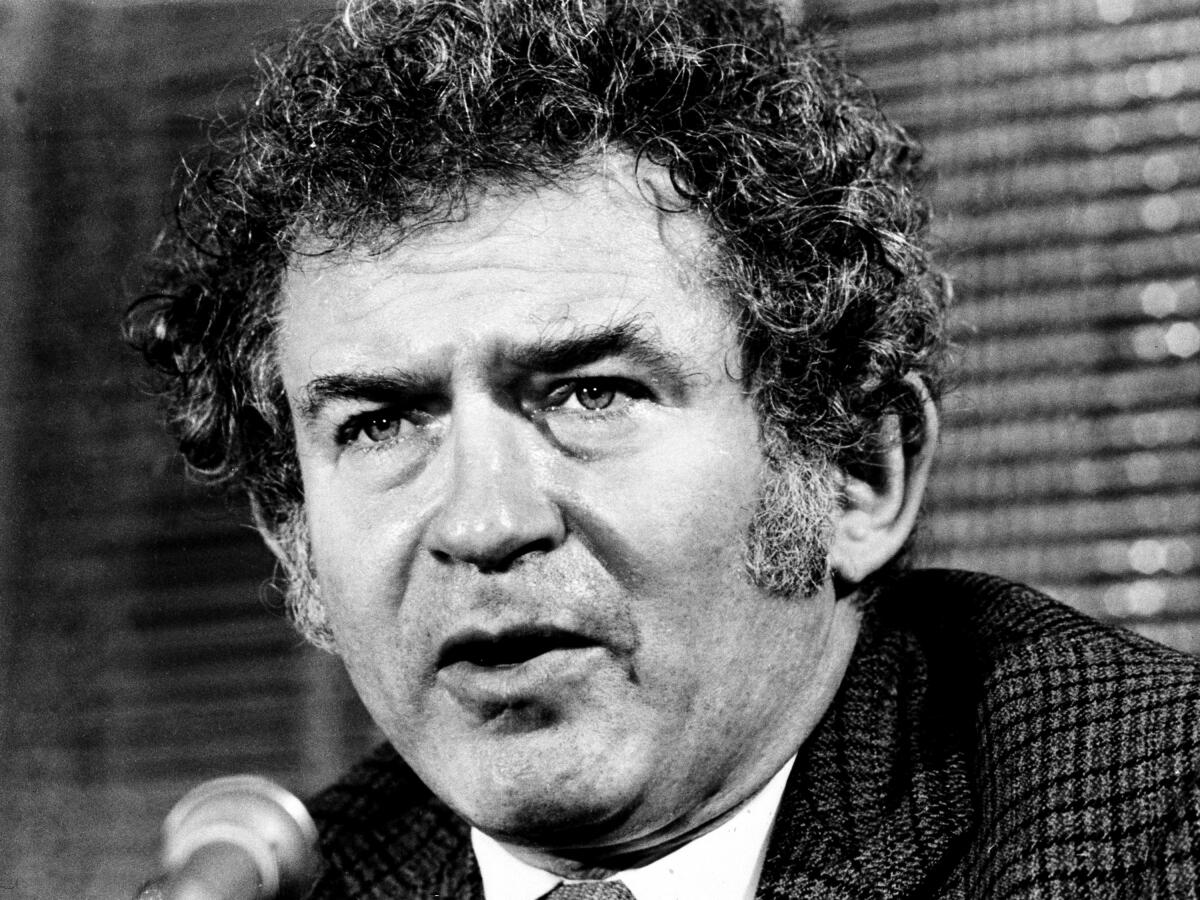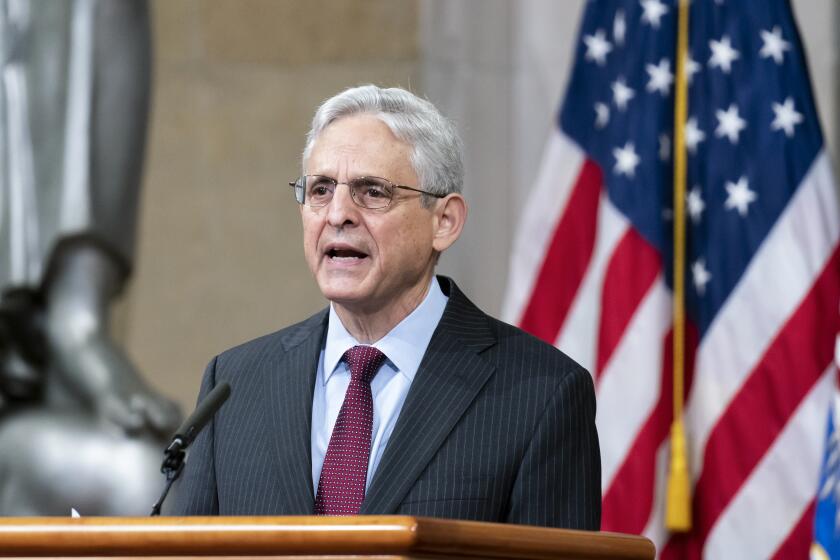Skyhorse picks up Norman Mailer collection amid Random House drama

- Share via
Skyhorse Publishing has acquired a planned collection of Norman Mailer’s essays after the late author’s longtime publisher, Random House, didn’t.
As is customary in a long-standing author-publisher relationship, the Mailer estate first offered the book to Random House, which declined to move forward with the collection, according to a Tuesday report from the New York Times.
The posthumous compilation of unpublished works and excerpts from interviews, manuscripts and letters was then swooped up by Skyhorse, an independent imprint that has recently developed a reputation for publishing divisive writers.
In Monday’s edition of the Ankler newsletter, journalist Michael Wolff claimed Random House, a flagship imprint within Penguin Random House, canceled initial plans to publish the Mailer collection because of potential feminist objectors and a junior staffer’s alleged concerns about a 1957 Mailer essay titled “The White Negro.” Though Wolff mentioned “a Random House source,” his only named source was one of Mailer’s sons, film producer Michael Mailer.
The provocative author isn’t as widely read as other leaders of New Journalism. But the literary world says he’s a tough act to follow.
In the aftermath of the story, some have speculated that Random House passed on the project because of Mailer’s history of violence (he nearly killed his wife by stabbing her in 1960), belligerence and misogyny. Others have argued that Random House’s decision may have been more of a risk-benefit calculation, considering the pugislitic author’s long-declining sales.
A spokesperson for Random House told the New York Times it is “factually incorrect that Random House canceled an upcoming book of essays by Norman Mailer,” asserting that the anthology was never under contract there and noting that the publishing giant still represents much of Mailer’s back catalog.
In a statement provided Wednesday to the Los Angeles Times, the Mailer estate similarly pushed back on reports, asserting that “there is no issue here.”
How Skyhorse Publishing became a house of last resort for Dershowtiz, Keillor, anti-vaxxers and anti-maskers — and a cancellation target itself.
“Random House is proud to publish Norman Mailer, and intends to promote his work significantly for the centennial” of his birth (the planned occasion for the collection), “in tandem with the publication by Skyhorse of the anthology,” said the literary agent Andrew Wylie, who represents the Mailer estate.
“In support of this publication, Random House is waiving all reprint fees for the anthology,” Wylie continued. “The Mailer family and Random House are united in support of Norman’s work.”
Complicating the conflict is that the Mailer estate and Wolff share a representative, Wylie. When asked point-blank Tuesday by CNN’s Brian Stelter if Wylie is still his agent, Wolff confirmed the overlap and said Wylie denied disputing his story, adding “That is off the record,” though it was a public reply from his Twitter account.
Wylie’s statement to the Los Angeles Times came a day after Wolff’s tweet.
Penguin Random House and Simon & Schuster are putting up a fight against federal efforts to scuttle their merger, alleging the government is wrong.
In Wednesday’s episode of the Ankler’s Hot Seat podcast, Wolff doubled down, insisting that Random House “had an editor on the book” and “a deal in place” before allegedly canceling the Mailer project. His source for the intel was Michael Mailer.
It’s worth noting that another one of Mailer’s children, John Buffalo Mailer, told the New York Times the details outlined in Wolff’s newsletter were “news to” him, adding that he didn’t suspect Random House had “any interest in trying to cancel Norman Mailer.”
“Another refrain in all these in all these stories is that everybody’s happy,” Wolff said on the podcast. “It’s just everyone scrambling to, I think, save their positions, save the deals that they have in place ... while, obviously, to have gone from being published by Random House to being published by Skyhorse is less than good.”
More to Read
Sign up for our Book Club newsletter
Get the latest news, events and more from the Los Angeles Times Book Club, and help us get L.A. reading and talking.
You may occasionally receive promotional content from the Los Angeles Times.











